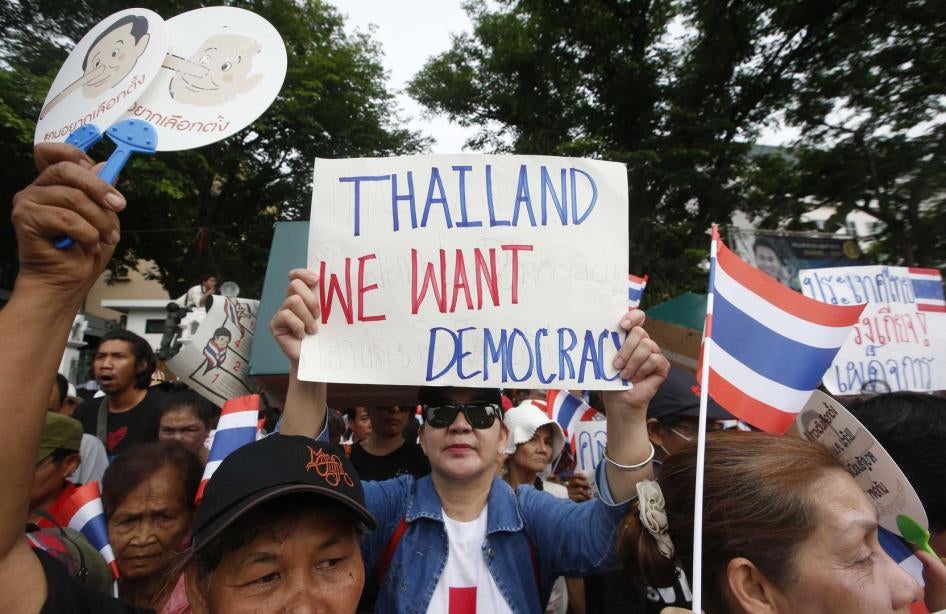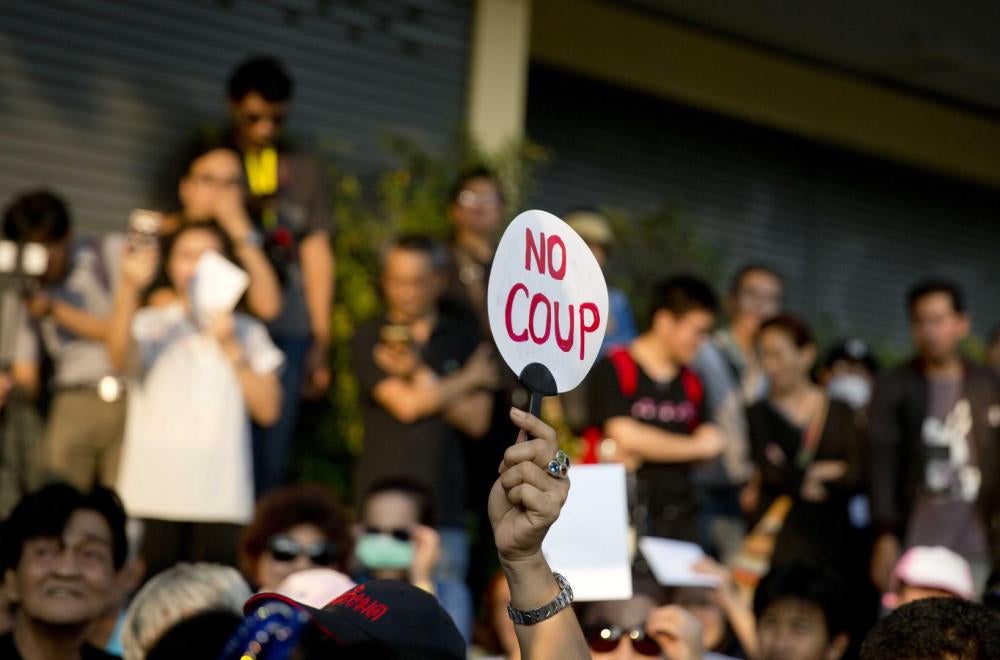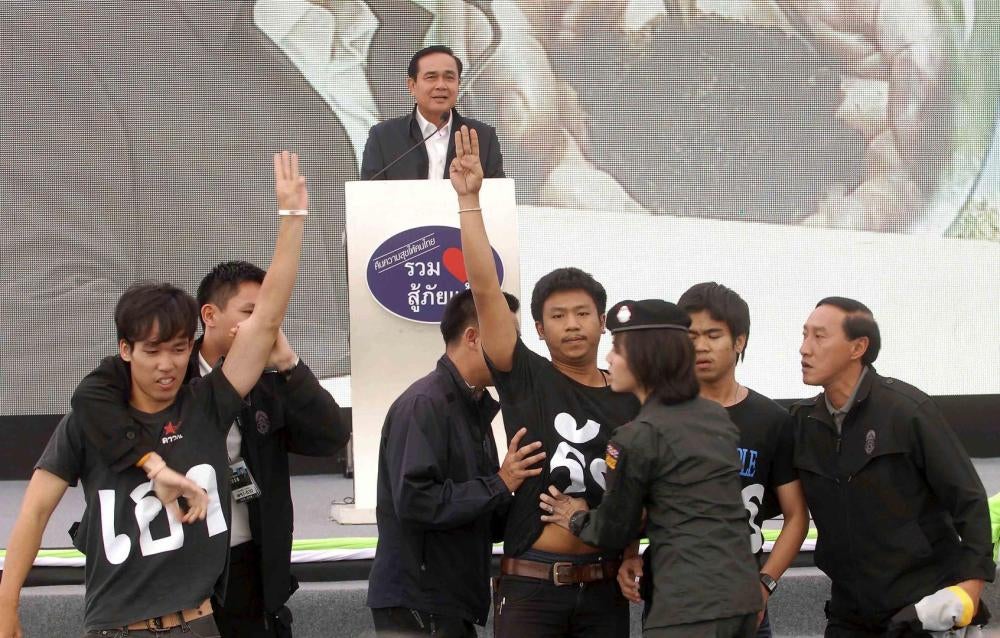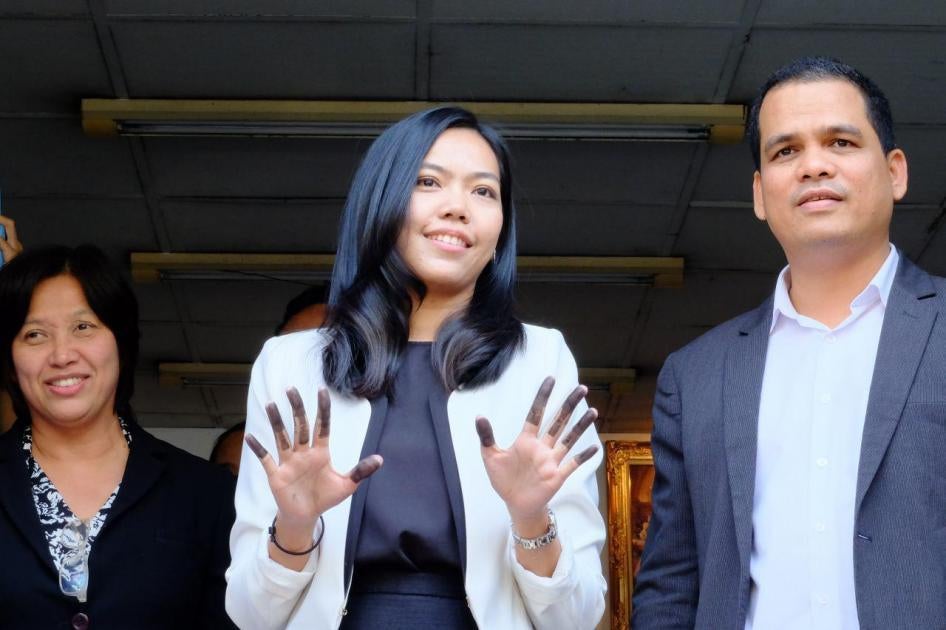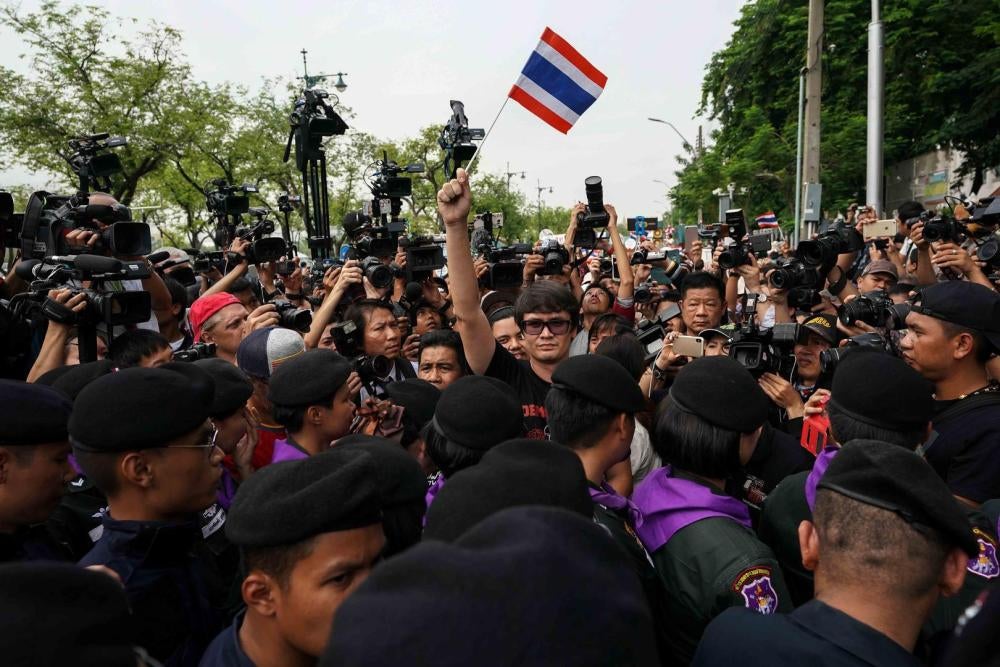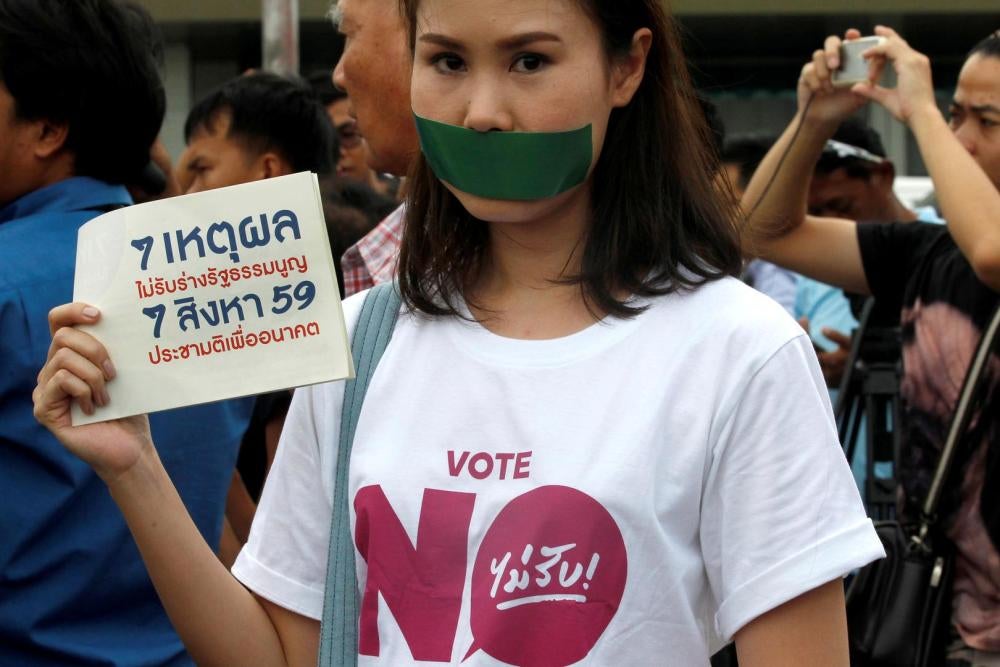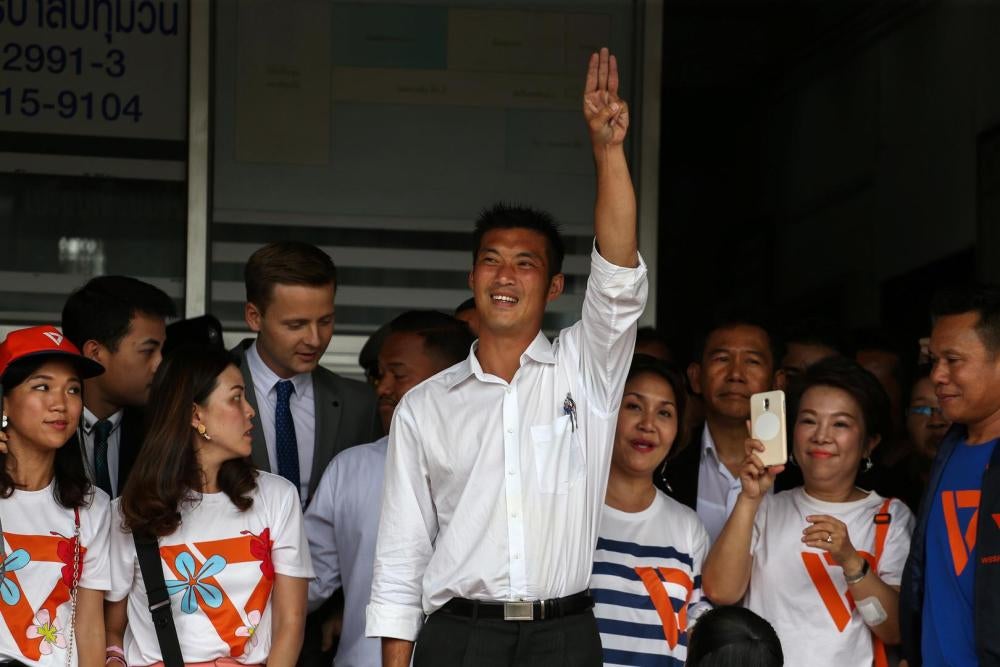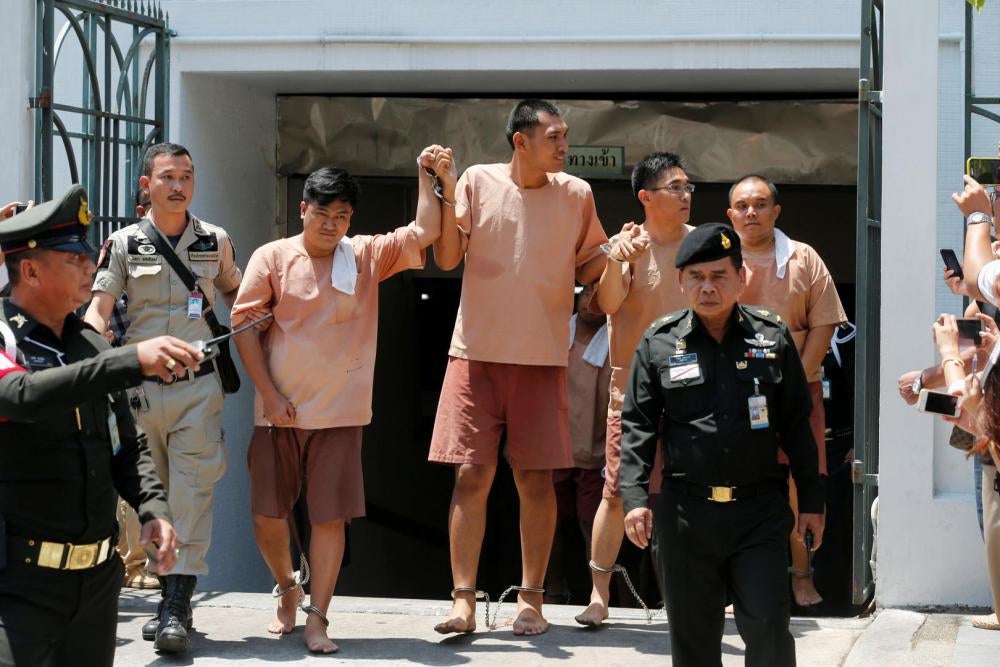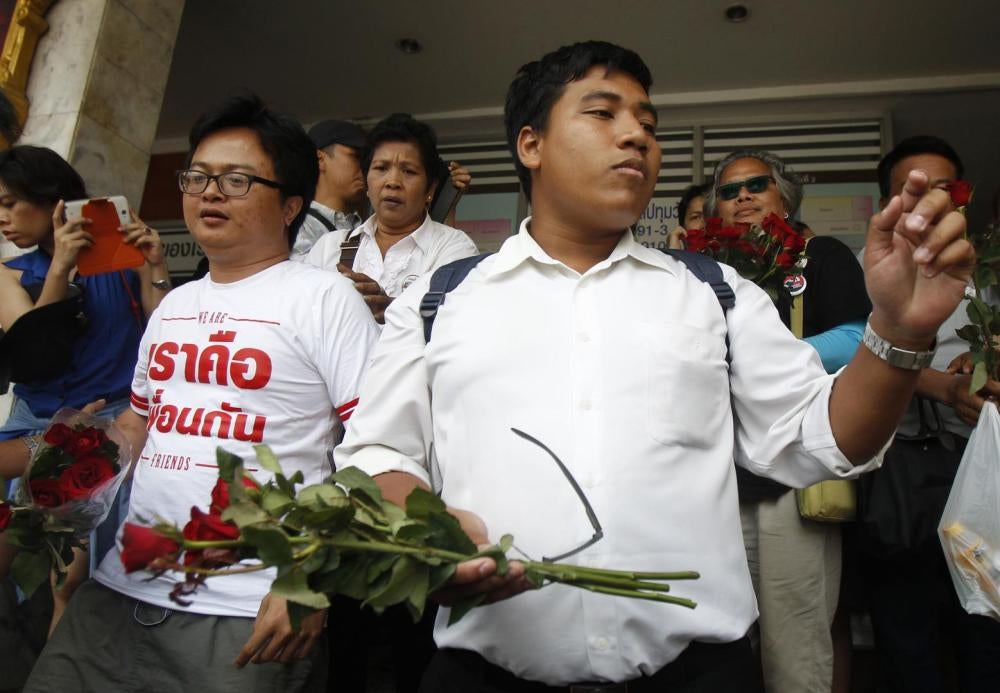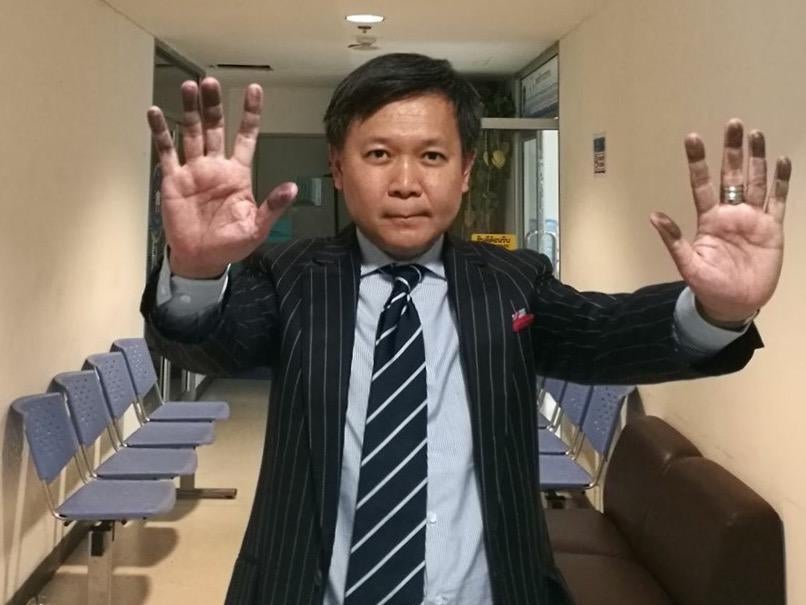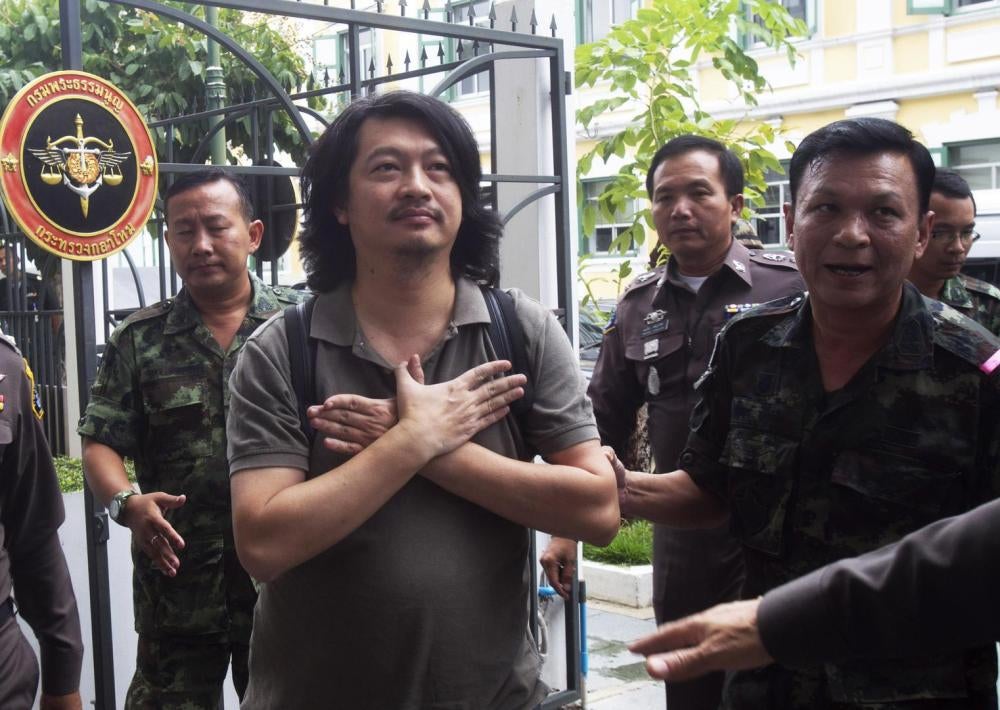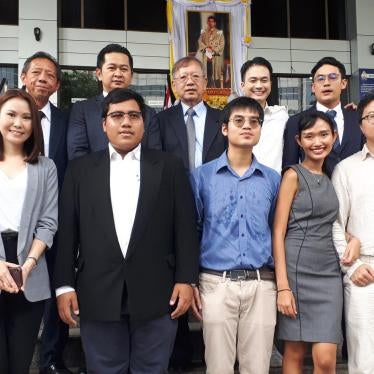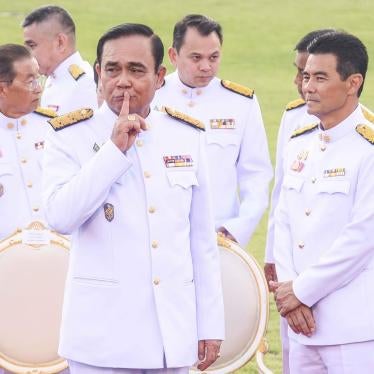(London) – Thai authorities over five years of military rule prosecuted numerous peaceful critics of the government to stay in power, Human Rights Watch said in a report released today. Concerned governments should press Thailand to protect the rights to expression and assembly, and reform laws penalizing peaceful speech to bring them in line with international standards.
The 136-page report, “‘To Speak Out is Dangerous’: The Criminalization of Peaceful Expression in Thailand,” documents the use and abuse of a range of broad and vaguely worded laws and orders to criminalize peaceful expression, including debates on matters of public interest, and provides specific recommendations for the repeal or amendment of those laws. Focusing largely on the period between the military coup in May 2014 and nationwide elections in March 2019, Human Rights Watch documented the Thai government’s use of repressive laws and orders against pro-democracy activists, opposition politicians, critics of the junta, and ordinary citizens.
“The five years after Thailand’s military coup were marked by intense government repression of peaceful speech and assembly, and little has changed under the new government,” said Linda Lakhdhir, Asia legal advisor at Human Rights Watch and the author of the report. “The government needs to stop prosecuting its critics and dissidents, which only makes a mockery of claims that democratic rule has been restored.”
Although the junta finally held elections in March 2019, the new government is still led by the junta prime minister, Prayut Chan-ocha, and peaceful critics continue to face arrest and prosecution under many of the same laws and orders used by the military government, Human Rights Watch said.
The report draws on interviews with lawyers, journalists, students, activists, members of nongovernmental organizations, and individuals prosecuted for speech or assembly and their family members. Human Rights Watch also examined police charge sheets, court documents, and news reports concerning criminal proceedings in relevant cases, as well as public statements by government spokespersons and officials. The report contains in-depth analyses of provisions of Thailand’s criminal code, as well as laws such as the Computer-Related Crime Act, the Public Assembly Act, and orders issued by the National Council for Peace and Order (NCPO) junta following the coup.
One of the most abused laws is section 116 of the Criminal Code – Thailand’s sedition law. Thai authorities have repeatedly treated peaceful criticism as sedition, arresting people for criticizing the prime minister, disparaging the performance of government, or simply for calling for elections. As one of those prosecuted for sedition said, “We called for elections and got charged with sedition.” The authorities have also used provisions of the Computer-Related Crimes Act criminalizing “false” information to arrest those commenting on the economy or on other aspects of the government’s performance, or for simply posting satirical memes about the prime minister on social media.
Hundreds of peaceful protesters have been arrested for violating orders issued by the military junta prohibiting political gatherings of five or more people, or for violating the broad restrictions of Thailand’s Public Assembly Law. Many of those charged for peaceful protests were also charged with sedition and a range of other criminal offenses. While the junta’s restriction on gatherings of five or more people was lifted in December 2018, prosecutions of some of those arrested under that provision continue. Even where charges for violating the order restricting gatherings have been dropped, many people still face charges for sedition or other offenses allegedly committed during the protests.
Human Rights Watch called on concerned governments to press the Thai government to drop all pending criminal charges for peaceful speech and assembly, repeal all remaining junta orders restricting basic rights, and bring Thailand’s laws, policies, and practices in line with international human rights law and standards for the protection of freedom of expression and assembly.
“Thailand’s new government is showing few signs that it will be any more tolerant of criticism than the junta it formally replaced,” Lakhdhir said. “Thailand’s friends should act together to press for change before the repression of the junta years becomes too deeply embedded. The window for change under this government is rapidly closing.”
